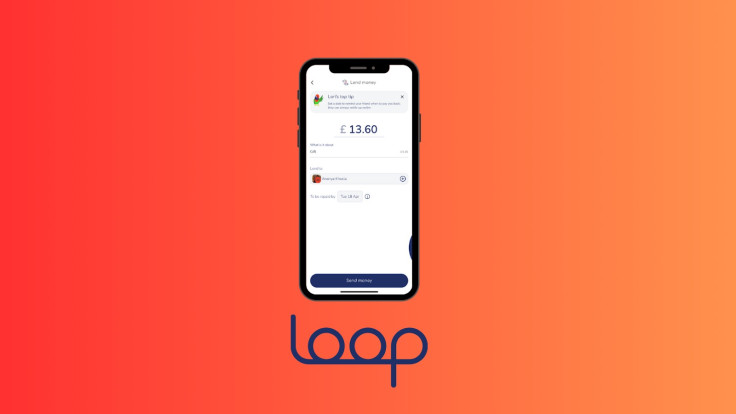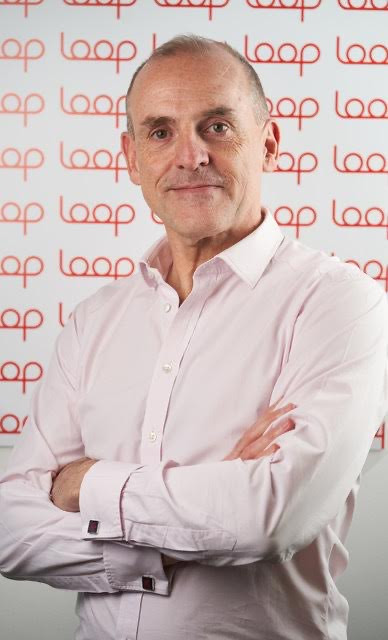Why Bank Chairman Paul Pester Decided To Establish a Money-Sharing App: The Story of Loop
Bank Chairman Paul Pester's Vision for Loop, is Changing How We Manage Money Among Friends and Family

Paul Pester got the idea to create the money-sharing app Loop by talking to his niece on WhatsApp. Pester, the chairman of sustainability-focused challenger bank Tandem, would often chat with his family on the popular messaging app and thought that sharing money among a group of friends or family members should be just as easy as communicating on an app.
"I realised we talk all the time by WhatsApp as a family, but when my niece needs some money, for instance, she ends up going to her bank rather than to us," says Pester. "And so the idea for Loop came from: Why is my niece going to the bank to borrow £50 when she's short, rather than just reaching out to her family through something that feels and works like WhatsApp? The idea is that you could create groups or loops of friends and seamlessly share money between you so that collectively you are all better off."
What Is the Loop App?
Pester envisions Loop as an application that does more than just facilitate transactions. The goal is to optimise the financial health of its user groups through intelligent data analysis and management.
At its core, Loop operates on a principle akin to social messaging platforms like WhatsApp — but with a financial twist. It allows users to create groups within which it analyses the bank balances of all members. Based on this data, Loop dynamically redistributes funds to ensure that no member suffers from shortfalls that might otherwise lead to expensive overdraft fees or the need for payday loans. This system can prevent financial distress for individuals within the group while maximising the utility of collective funds.
"Loop is a data layer, if you want to draw it conceptually, it's a data layer that sits between the customers and the banks, and it has intelligence built into that data, which optimises flows of money between a family or group," says Pester.
"Imagine one family member has money, the other family member needs money. It doesn't matter physically where they are in the world. One can be living in Australia and one can be living in California. Loop will optimise their use of money between them. I think we're going to see more businesses that compete in that intelligence layer."
This approach is an example of open banking: using a secure digital framework that enables financial institutions to share customer financial data, such as spending habits or transaction history, with authorised third-party providers upon the customer's consent.
This system promotes innovation and competition in the financial services industry by allowing the development of more personalised banking and financial services and secure and efficient data exchange. It aims to empower customers with greater control over their financial data and open up new avenues for financial management, including budgeting, investing, and payments to individuals. Ideally, says Paul Pester, open banking will enhance transparency, foster financial inclusion, and drive the creation of more customer-centric financial products and services.
Finance for Millennials and Generation Z
Much of the inspiration behind Loop's creation was a recognition of the challenges faced by those with limited financial means, often younger individuals who have not been able to build savings.
The high costs associated with overdrafts and short-term loans can lead to precarious financial situations, sometimes resulting in severe consequences like inability to pay for rent or utilities, or racking up substantial debt because of the interest that accrues on relatively small loans. By providing a service that was traditionally available only to the wealthy, who can use private banking to borrow against their own assets at lower rates, Loop aims to democratise financial well-being.
Loop has found particular appeal in younger generations, such as millennials and Generation Z, who have come of age expecting services like banking to be completely digital and mobile. Furthermore, the application's functionality as a supporter of a group's financial health speaks directly to the collaborative and community-oriented values members of these younger generations often share.
Unsurprisingly, Loop quickly became a hot topic on platforms like TikTok, where financial literacy and innovative tools can gain viral attention from younger users.

"It's very, very popular with Gen Zs and millennials. It was the top-rated finance app on TikTok in the UK in 2022," says Paul Pester. "Why did it become so popular? Because as you were doing micro-loans with your friends, lending 10 pounds here, 10 pounds there, repaying it, Loop kept track of all of those micro-transactions and helped you build a credit file which you can then export to a bank.
"You can say, 'OK, well, I've never borrowed from a bank before, but I may have two, three, four, five years' worth of evidence here that I've borrowed from friends a hundred times or borrowed from family, and 98% of the times I've always repaid it on time. That's exactly the data that banks need to help make informed decisions. And it's precious data because it's very hard for a bank or an organisation to get those insights into Gen Zs and millennials."
Open Banking and Broader Fintech Context
The broader context of fintech in the U.K. shows a landscape ripe for new apps to make an impact. The government's embrace of the industry and open banking regulations have laid the groundwork for a new wave of financial services, allowing third-party providers to create solutions that directly address customer needs.
Loop is an exemplar of this trend, leveraging the data access provided by open banking to offer a service that goes beyond traditional banking products. It represents a move toward what Pester describes as the "third revolution" in finance, in which generative artificial intelligence and data analysis create new business models that serve customers more efficiently and empathetically.
Paul Pester, who also recently co-founded the fintech accelerator Archie, is a vocal and active proponent of this new era in financial technology, one that blends the latest in data analytics and AI with a keen understanding of the challenges faced by everyday people. The hope is that Loop and other fintechs can help foster financial resilience, awareness, and community among its users as part of a broader open banking ecosystem.
"Rather than the bank always knowing that I run out of money when it gets to the end of the month before my paycheck comes in, I can start using that data together with AI to start building services to really help me get more out of my money and get one up on the bank is the way I would put it," says Pester.
"That may seem a strange thing for a bank chairman to say, but I think it's really important that consumers have the same information and insight. Open banking and open finance are going to transform the way we as individuals engage with our banks."
© Copyright IBTimes 2025. All rights reserved.





















